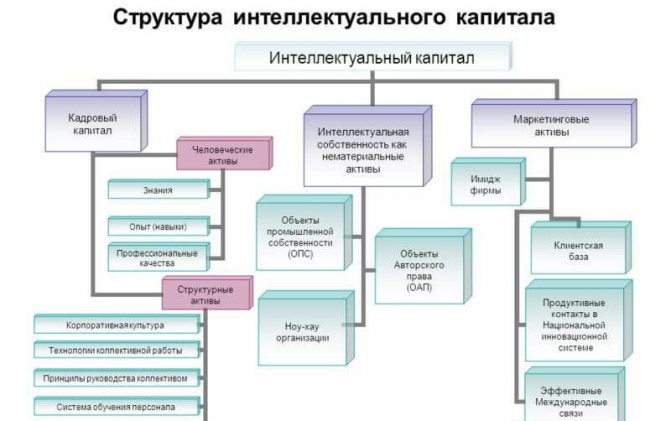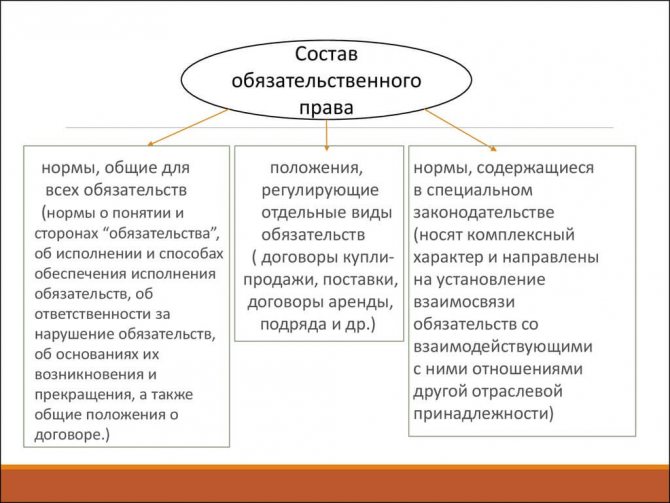The concept of private home ownership
Living in your own apartment or your own house, wanting this and striving to achieve it - all this is the norm for us, the natural order of things. Few people remember that just recently we were all just employers. And although the apartment was perceived as its own in Soviet times, in reality it was not so.
The concept of private ownership of housing returned to the lives of Russian citizens only in 1990, since the adoption of property laws in the USSR and the RSFSR. And since 1991, the share of private property in the housing stock began to grow rapidly thanks to the start of privatization. Before this, all residential property was owned by the state. The emergence of private ownership of housing required changes in legislation and the establishment of mechanisms for regulating housing relations.
Private property is one of the forms of property, meaning the absolute, legally protected right of a certain person to specific property.
Private property in housing is considered to be real estate in the housing sector, owned by citizens and legal entities. According to Russian legislation, private ownership of real estate is not limited in size, value and quantity, is ensured by the right of inviolability and is subject to mandatory registration with the Office of the Federal Registration Service.
Private property can be individual (belongs to one person) or common. Common ownership arises when two or more people take ownership of one undivided dwelling. Most of the former state and municipal housing is in common ownership of the citizens living in it; quite often apartments are inherited by several persons; Cases of joint purchase of housing are widespread.
Types of private property
Private property can take the following main forms:
- Single property - characterized by the fact that physical. or legal A person realizes all property relations. The owner of a private enterprise can use the labor of his family or hired workers;
- Partnership ownership - it offers the association in one form or another of property, capital, several legal entities or individuals for the purpose of carrying out common business activities;
- By type of desk. own We have an LLC (limited liability company) and an ALC (additional liability company).
- Corporate ownership is based on the function of capital, which is formed through the free sale of titles to one’s own shares in an OJSC (open joint stock company).
Methods for acquiring private housing
Citizens of the Russian Federation have the right to purchase housing as private property by:
- privatization in accordance with the established procedure of occupied residential premises in houses of state and municipal housing stock;
- purchase and sale of housing, including through exchanges and auctions;
- housing construction, including construction by partnerships of individual developers;
- participation in housing and housing-construction cooperatives, condominiums;
- acquisitions by inheritance, as well as for other legal reasons.
The purchase or sale of housing must be secured by a purchase and sale agreement. Under a real estate purchase and sale agreement, the seller undertakes to transfer it into the ownership of the buyer. The form for concluding a contract for the sale of real estate is only written. The agreement is signed by the parties and is subject to state registration, from the moment of which the agreement is considered to have entered into force. The contract for the sale of real estate must stipulate the price of the object of sale.
The contract for the purchase and sale of real estate must contain data that makes it possible to definitely establish the real estate to be transferred to the buyer under the contract. In the absence of such data in the agreement, the condition on the real estate to be transferred is considered not agreed upon by the parties, and the corresponding agreement is considered not concluded.
The transfer of real estate by the seller and its acceptance by the buyer are accompanied by a document of transfer (usually a deed of transfer), which is signed by the parties. If the property, when accepted by the buyer, does not comply with the terms of the purchase and sale agreement, the seller is liable for improper performance of the agreement.
Basic provisions
The main feature of property and, as a consequence, property rights is its ability to belong to a specific person. We can say that without such accessory there can be no property as such. That is, it must necessarily belong to someone.
You should understand the types of property rights used in business activities. The basis of management in this matter is property rights. It is the owner of the property who can use and dispose of the property at his own discretion. An important point is the condition that the actions taken do not contradict the law and other regulatory documents.
Privatization of housing
Privatization is the process of denationalization of property. Privatization of housing means the free transfer to citizens of residential premises located in the state and municipal housing stock (Section I of the Law of the Russian Federation “On Privatization...”). Each citizen has the right to acquire ownership through privatization of residential premises in the state and municipal housing stock for social use once.
An exception is made for minors who have become the owners of occupied residential premises in the manner of its privatization. This category of citizens retains the right to a one-time free privatization of residential premises in houses of the state and municipal housing stock after they reach the age of majority.
During privatization, residential premises may be transferred into the ownership of not all, but some of the persons living in it, in accordance with an agreement reached between them. Owners of a privatized residential building or apartment have the right to own, use and dispose of them at their own discretion: sell, bequeath, lease, and make other transactions that do not contradict the law.
There are 4 main forms of privatization execution:
- individual property - this form implies that the property belongs to one person. This may be when one person is registered in the apartment, or if all those living in it have renounced their rights in favor of one person.
- shared ownership - as a rule, used in the privatization of communal apartments. It is characterized by the exact size of the share of each owner. In the case of one family living, this form allows you to assign one of the rooms to each family member;
- common shared ownership - in this case, according to Art. 245 of the Civil Code of the Russian Federation, the shares of all residents who have privatized an apartment are recognized as equal (if they have not agreed on the actual division of the rooms);
- common joint property - in this case, the shares of the owners are not indicated (they are unallocated). Applies only to spouses and their minor children.
In the Russian Federation, free privatization of housing began in 1991 and will end on March 1, 2013.
Types of real estate ownership
The right of ownership is spelled out and regulated by the legislation of the Russian Federation, namely the Civil Code and Article 209.
The right of ownership is the right of a citizen to own, dispose of, and use an object legally. According to Article 212, the following types of property rights are distinguished:
- municipal;
- private;
- state
Each of them has its own characteristics and differences, which are also prescribed in Russian legislation.
State
State property can be divided into the following subtypes:
- Federal property is real estate that is in common use and classified as objects of state significance. As a rule, these are government agencies and organizations;
- subjects of the Russian Federation - this is property that is listed on the balance sheet of regions and republics.
The owner in this case is the Russian Federation itself, but it can only be disposed of in the interests of the country and citizens.
This right applies to such objects as:
- Natural resources;
- cultural values;
- historical monuments;
- defense facilities;
- objects that belong to the armed forces of the Russian Federation;
- roads, highways, highways;
- objects of strategic importance;
- others.
This ownership is not transferable, but may be granted on lease terms and nothing more.
Municipal
According to Article 212 of the Civil Code of the Russian Federation, municipal property is objects, in particular real estate, that rightfully belongs to a city, village or other municipal entities.
This right applies to the following objects:
- educational institutions (schools, kindergartens, institutes);
- park areas;
- medical institutions;
- city administration building.
Private
Private property implies the right to own, use, and dispose of property in accordance with the legislation of the Russian Federation, that is, by its legal owner, who previously formalized this right.
Private property is protected by regulations and, as a rule, is used when registering ownership rights to an apartment, house or land.
Private property can also be registered for the following positions:
- securities;
- weapon;
- other.
Joint ownership
Joint ownership is common property without determining shares. The existence of joint ownership is explained by the presence of close personal ties between its participants. It should be noted that joint ownership of an apartment arises only in special cases (Article 244 of the Civil Code of the Russian Federation) - during privatization and when spouses purchase housing. In other cases, common property can only be shared.
In case of common joint ownership, the participants have shares, but their size in the common property is not determined and is recognized as equal. This is considered to be the housing of spouses acquired during marriage using common funds, unless there are other instructions in this regard in the marriage contract (Article 256 of the Civil Code of the Russian Federation). In case of division or inheritance of property, shares must be allocated. If one of the owners wants to sell, donate or exchange their part of the joint property, the apartment is transferred to shared ownership.
The disposal of property (and/or determination of shares) that is jointly owned is carried out by agreement of all its participants (Article 253 of the Civil Code of the Russian Federation). If the owners make an appropriate decision (or if agreement is not reached, by a court decision), shared ownership of these persons may be established on the common property.
After allocating a share, the owner has the right to dispose of his share, however, he must take into account the interests of other owners - their right to pre-emptive purchase (more on this later).
If the allocation of a share in kind from joint ownership is impossible (for example, in a one-room apartment), the allocated owner has the right to receive payment to him of the value of his share (with his consent or by a court decision) by other participants in shared ownership in the form of a sum of money or other compensation (Article 252 of the Civil Code of the Russian Federation).
Private property and its types
As already mentioned, there are five types: individual, collective, shared, common shared and general joint. The division is determined by the number of owners, as well as their rights to property (in our case, real estate).
Individual ownership (sometimes called complete or personal), as you might guess, involves registration of only one person in the housing (for example, there are no other family members or they have filed a refusal). The owner solely uses, manages and owns the apartment or house. The right can be obtained through purchase, inheritance or gift, privatization and participation in a housing partnership or shared construction; it comes into force only after entry into the Unified State Register, and not after the conclusion of the corresponding transaction.
Collective property is not recorded in the Civil Code of the Russian Federation, but in practice it exists. This is the case when real estate is owned by a collective, and all its members have equal rights to housing. This can happen in three cases:
- pooling the funds of several people to form a new joint-stock company or cooperative;
- reorganization of a state-owned enterprise and creation of a new entity on its basis;
- transfer to a state company for lease.
There are three forms of collective ownership - cooperative, partnership and joint stock ownership. The first involves the joint activity of many of its members, the second - co-ownership in equal rights of several people, the third combines the collective form with the personal one. The key feature of collective property is that the subject here is not a person, but a community or group of individuals.
Common shared ownership as a concept is fixed in Article 245 of the Civil Code of the Russian Federation and is regulated by Art. 245-252. It occurs when the property parts of the parties to the transaction are not determined - and are considered equal by default. In this case, taxes and housing costs are divided equally among all owners.
If the agreement allocates unequal parts to the owners, then we are talking about shared ownership. Its key difference from the common one is the division of shares not into ideal ½ or ⅓ (as in the common share), but into real ones, calculated in square meters or parts of the living space. Some rooms can be divided equally according to shared ownership, but some (kitchen, corridor, bathroom) cannot: they will be classified as common shared ownership with conditional division. Taxes and expenses in the case of shared ownership will be paid depending on the size of the owner's share.
You can obtain the right to any shared ownership through privatization, inheritance, donation, purchase or sale, etc. There can be any number of owners. You can sell your share in real estate even without the approval of other owners - however, they will have the preemptive privilege of purchasing.
Common joint ownership does not imply the allocation of shares. It arises between spouses and their minor children (i.e., closest relatives). According to Article 253 of the Civil Code of the Russian Federation, all of them are endowed with equal rights to dispose, use and own joint property. If you need to sell the apartment, this can only be done with the consent of all owners.
It will not be possible to buy housing in common joint ownership for 2-4 people who are not close relatives - only in shared ownership.
Shared ownership
Shared ownership implies that each owner has a predetermined share in the ownership. According to Article 245 of the Civil Code of the Russian Federation, by agreement of all participants in shared ownership, a procedure for determining and changing shares depending on the contribution of each to the formation and increase of common property can be established.
Possession and use of residential premises in shared ownership are carried out by agreement of all co-owners. In the absence of such an agreement, they are established by the court. If the parties reach an agreement, separate use of the residential premises is possible, regardless of the size of their share in the common property.
Shares can be ideal or real. The real share corresponds to a specific object. Its allocation requires the technical ability to separate not only residential but also non-residential premises, as well as to make a separate entrance. Therefore, allocating a real share is possible in a private house, but not in an apartment in an apartment building. In practice, the share is determined in ideal terms. It is not connected to any real room or part of the apartment.
Often, it is actually impossible to isolate the shares due to the discrepancy between the real and ideal shares. In this regard, many difficulties arise - how to distribute income from such property, how to allocate shares when receiving an inheritance, etc.
In the case of donating his share to someone, its owner is not obliged to obtain the consent of other participants in shared ownership. If a share in the property is sold by one of its participants, the remaining participants in the shared ownership have the right of first refusal at the price and on the terms of its sale (except for sale at public auction). The seller of the share is obliged to inform the other participants in shared ownership in writing about the intention and conditions of the sale of his share. Cancellation of the purchase or acquisition of a share must be completed within a month. If the owner sells his share to one of the co-owners, he is not obliged to notify the others.
In the event of a violation of the pre-emptive right to purchase, any participant in shared ownership has the right to demand in court the transfer of the rights and obligations of the buyer to him within three months (Article 250 of the Civil Code of the Russian Federation). If a court is considering a dispute about invalidating a contract for the purchase and sale of residential property by one of the participants in shared ownership, the court must find out whether the right of first refusal has been respected by both the seller and the other owners of this property.
Often the violators are not the sellers of the share, but the owners of other shares in the property. They try to create various difficulties for the seller, and the sale of a share in the property becomes a problem. In order not to receive notice of the sale, other participants do not open the doors, hide, or set fire to mailboxes. In this case, you can use the help of a notary. A special situation arises if one of the owners is a child. In this case, notification is sent to his parents. Sometimes you have to obtain consent from the guardianship authorities.
Types of property rights
The main types of rights in this area are real, obligatory and intellectual, each of which will be discussed further.
Note! The classification of the entire set of rights into three categories has no relation to taxation issues or other legally significant actions. The above division is more theoretical in nature and is aimed at forming a general idea of property rights.
Rights to the results of intellectual activity, means of individualization

Intellectual property refers to two components - the results of human activity and means of individualization, which are equated to the former. A person actively engaged in creative, scientific or other intellectual activities can create an object with ownership rights to it. Practice shows that the main products of this type of property are:
- Databases, registries and systems.
- Phonograms, audio recordings, performances.
- Invention, experimental results, models and industrial samples.
- Names for brands and companies, service marks and goods.
- The results of literary activity, art or science.
- Software for technology.
Rights to the results of a person’s intellectual work consist of several categories - the ability to use, dispose of and protect one’s works from illegal taking and use by third parties. Such powers can belong to either one person or a group of people, if the creation was published as a group.
Every creator can not only exercise their rights, but also protect them. To do this, a person’s right to a specific object or product is established in court, with the provision of evidence confirming the fact of ownership.
Note! The very results of a person’s activity or individualization cannot be transferred from one person to another or alienated. Only rights to the results of activities, or material media with them, participate in civil circulation.
Characteristics of rights of obligation

The group under consideration includes a system of rights that is closely related to property relations that arise in the process of implementing civil contractual relations. A special feature is the presence of two parties - the creditor and the debtor.
It is important to understand that such an obligation is the relationship between the parties in the process of economic turnover of goods, that is, the debtor has an obligation to transfer property or sell a service, work, make a payment, or refuse any action.
The creditor has the right to demand the timely fulfillment of his obligations by the debtor. There is a state of interconnection and dependence of one on the other, that is, rights of obligation give the creditor the opportunity to rule over the debtor.
Legislation of the Russian Federation
The main legislative documents establishing the features and classification of various forms of governance are the Constitution and the Civil Code of the Russian Federation.
In accordance with the law, the main task of identifying forms of ownership is to determine the legal regime of property and the opportunities that the owner has in relation to values.
Paragraph 2 of Article 8 of the Constitution of the Russian Federation recognizes various types of property management and ways to protect the rights of citizens. A similar division is carried out by Article 212 of the Civil Code of the Russian Federation, which adds smaller categories of values.
Forms and types of property
Property rights in the Russian Federation are based on a system of legal norms that secure and protect the citizen’s ability to manage values.
Classification
The Civil Code (hereinafter referred to as the Civil Code) of the Russian Federation establishes 4 types of property, which vary depending on the type of property.
Types of property according to the Civil Code of the Russian Federation:
- State - property under federal supervision. It is necessary for the work of the state and its subjects. For example: government buildings or defense installations.
- Municipal - values belonging to local governments. Such facilities play an important role in regional infrastructure. For example: hospitals, schools or dormitories.
- Public - represented by a set of groups of owners.
- Private - property that an individual has the right to dispose of to any extent.
However, these are not the only types of property. The legislation also establishes the classification of property according to other criteria, which will be applied depending on the situation.
Other signs of classification of values:
- according to the form of appropriation of various forms of property - individual, collective and state,
- by type of property,
- by type of production relations - feudal, capitalist, socialist and slaveholding.
Most often, legislation turns to the second classification criterion due to convenience and simplified division of objects into categories.






